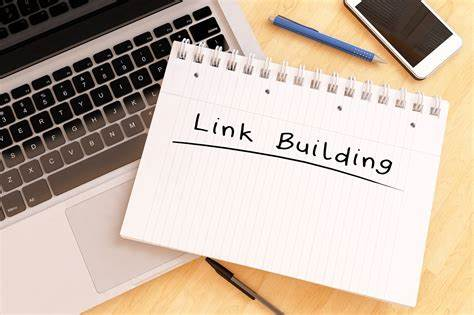Building links is one of the most effective SEO strategies, and it works to a great extent because high-quality links will boost the website’s traffic. However, link building can go wrong at times, which can significantly impact your company.
Some people are still unaware of the difference between a good and a bad link. This data is vital for making smart link-building choices. Link building does not imply that you should construct links at all costs, both physically and metaphorically. These practices can be a very long and tedious process.
Learn which link building techniques will propel you to the top of search results, which will waste your time, and which might hurt your website.

Even when you hire someone to build links for your website, you should understand certain aspects of link building to better spot any mistakes that will adversely affect your page ranking, if they commit any.
To facilitate this, let’s look at the most common errors that result in Google penalties, as well as how to avoid them.
1. Improper Anchor Text
Contents [show]
The anchor text is basically what the user clicks on a link. Anchor texts provide relevant information to search engines, which rate the articles along with the people who read them. Since the anchor text informs Google about the link’s direction, using as many anchor texts would increase the traffic.
However, if you create many links with only one anchor text, the links are more likely to be deemed spam, which would harm your website’s traffic.
Moreover, one should not ask for specific anchor text. The Late Eric Ward said that websites should be linked to however they see fit. That will seem more real. It will be considered more organic by Google, which will benefit the site in the long run.
Another possibility is that your SEO professional may associate too many links to the same anchor text. But it’s important not to build too many links with the same anchor text as this could be flagged as spam.
You must ensure that the text that accompanies the link is engaging and important enough to entice the reader to click. If you don’t give them even a hint as to what the link is about, you’ll get no clicks, and the perfect link in a great place will be pointless.
2. Paid Links
Buying paid links is somehow considered easy because you’re doing it on a small scale or through personal relationships. It wouldn’t make sense when you realize that if a website owner sells links to you, they’re almost certainly selling links to a few other people as well, and those people are almost certainly buying links from other websites. From there, you will see how rapidly the network expands.
One thing to keep in mind is that Google is good at detecting paid links. If this happens, Google will penalize your website, and your rating will suffer greatly. In most cases, you will lose more than you win in this situation.
Buying or even selling links is a terrible idea. If you are selling links, you should go over to sites like Backlinks.com, which are legal and specialize. Bear in mind that paid link networks intend to keep the fact hidden that the links are paid, while other services do not.
3. Building all Nofollow Links
The ‘nofollow’ attribute on a backlink instructs search engines not to move any ‘link juice’ back to your site, which defeats the intent of link building. That is to say, if your links have the nofollow attribute, adding them to your blogs is meaningless.
In another scenario, many poor webmasters would deceive you – you pay for a backlink and vanish overnight or get a nofollow attribute. Check all of your links regularly and see if all of them are no-follow.
Few sites link to your website, but they use the nofollow tag. The label would inform Google that the connection is irrelevant to the ranking algorithm. On the other pages, make sure you have a lot of dofollow posts.
Getting many nofollow links, which are meaningless, is one of the worst link building mistakes.
4. Pages that Spiders can’t Crawl
This issue has become more common over time as websites strive to link to as few pages as possible. If spiders didn’t access your websites, your links would be futile, even if they seem to be valuable. There are various types of pages that spiders can’t crawl; these can include dynamic pages and pages that the robot.txt file has blocked.
You must always double-check the links from time to time to ensure that they are on pages that are visible to viewers. There’s also a helpful tool for this: Search Engine Spider Simulator, which will allow you to review your links quickly.
5. Building Private Blog Networks
Why bother creating legal links when you can install WordPress on a few dozen domains and link to any website you want, whenever you want?
A private blog network is made up of several blogs that are all managed by a single individual. These websites’ content isn’t meant for the general public but only for SEO ranking purposes. It is yet another typical blunder that results in Google penalties.
Every search engine has prohibited using PBNs for SEO ranking functions. They do so because using PBNs raises the odds of penalties, spam-related research engine difficulties, and spammy user expertise.
So, where is the risk element? The overall consensus among SEO strategists is that PBNs aren’t part of white hat SEO plans, and Google penalizes sites that use Personal Blog Networks.
If you want your links to work well for you and not against you, you should focus on making them your priority. Keep track of your links and check them occasionally to make sure everything is working according to your plan.
How to build links in a better way?
- Determine the value of that link
- Quality over quantity
- Unlinked brand mentions
- Reclaiming broken links
- Curate original and diverse content
- Create organic links
- Hire reliable professionals that provide high quality link building services
Today, links are an essential aspect of SEO, but if you don’t know which kinds break Google’s rules, you might do more harm than good.
As you can see, there are numerous pitfalls to take care of when establishing links, especially if you are unaware of them. With all of this in mind, be careful and focus on organic links, and you’ll reap a tenfold reward!


